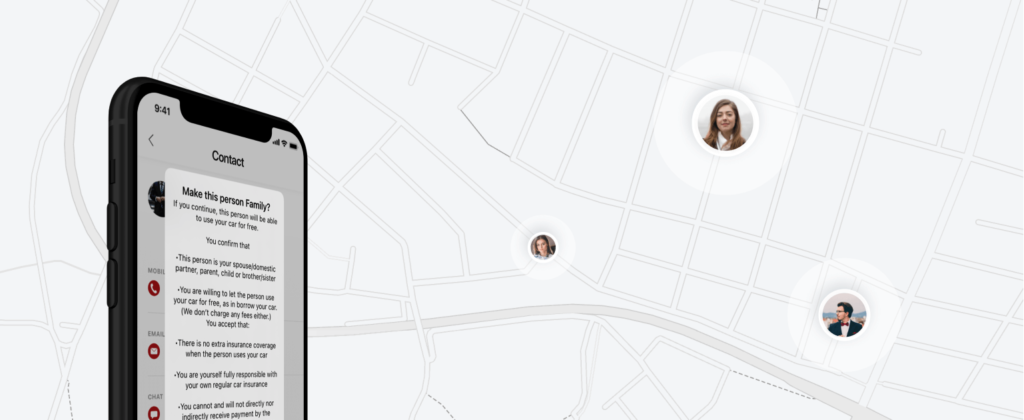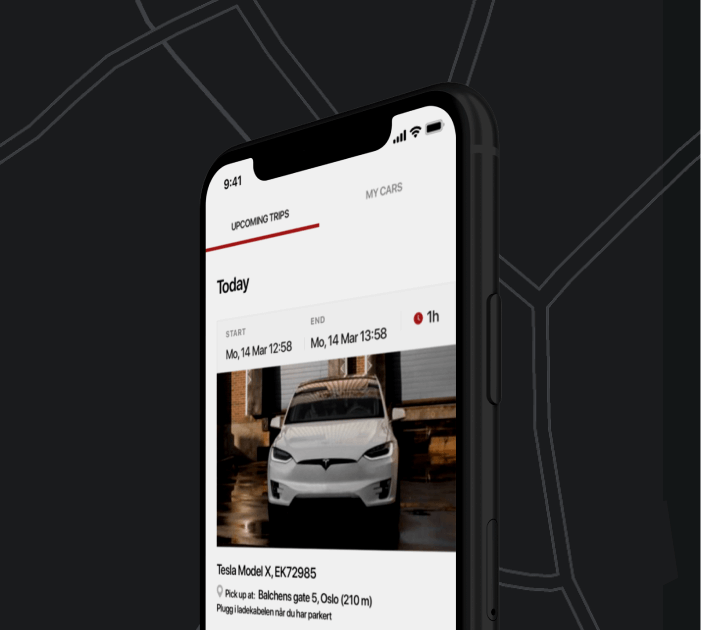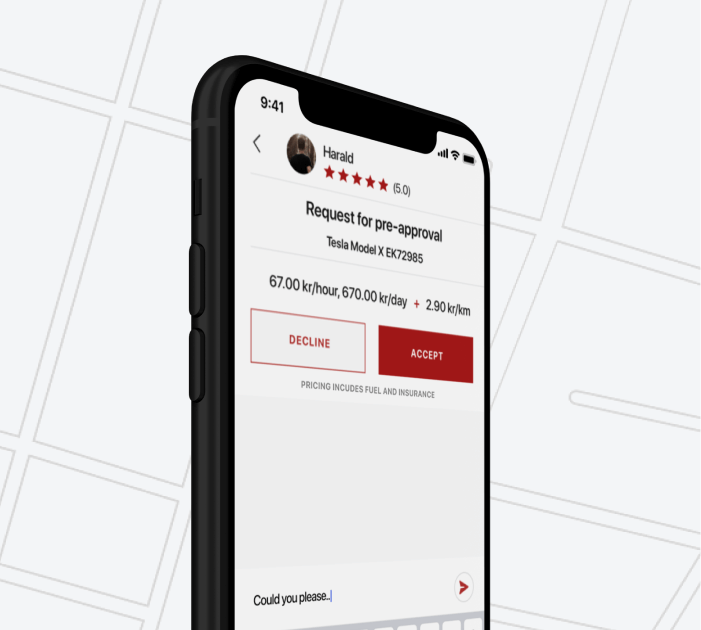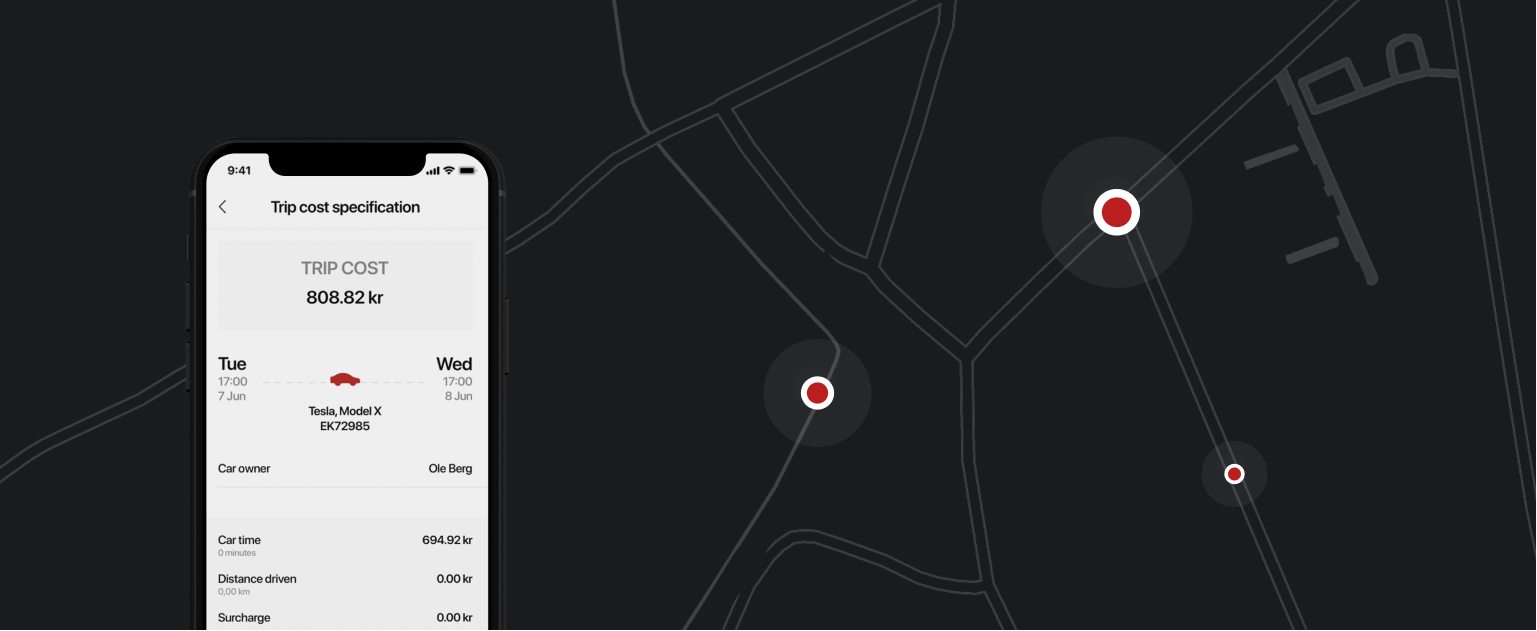Tapcar: car sharing in a very different way
A private car sharing application for smart vehicles.
Services
Cross-platform app development
Backend development
Maintenance and support
Technology
React Native
Node.js
The client first approached Bamboo Apps in 2019. The founder of the company, a former automotive executive, wanted to create a company which could take part in the industry’s shift to mobility and the Car as a Service (CaaS) model. The mission for this mobility tech company is to make mobility sustainable and make the car fit better into our modern society.
Creating more value for vehicle owners
In fulfilling its vision Tapcar had to decouple car usage from car ownership and digitize the whole process of using a car. The first step in this vision was a peer-to-peer car sharing solution with a very different focus than the typical rental-oriented car sharing solutions. With a stronger emphasis on sharing and less on renting, Tapcar aims to become a realistic alternative to the traditional buying or leasing a car.
By making it possible for car owners to share their car with a small, select group of users — family, friends, colleagues, and other people the owner trusts — in a word car friends, Tapcar aims to build a high level of trust within each group. Simultaneously by building a super smooth user experience the company strives to give all users, owners, and drivers alike, the experience of having their regular car(s) at their disposal whenever they need. This called for development of proprietary algorithms, integration with the vehicle’s internal software as well as several other external systems.
The concept and its development are based on principles of operations research, queuing theory, and other statistical and economic methodology.

Peer-to-peer car sharing application

The client decided to create a peer-to-peer car sharing application. Based on early stages of development, the client chose Bamboo Apps to further develop and finalise the software due to their extensive track record in the automotive industry.
The private car sharing application would have two types of users: car owners (hosts) and drivers. Owners would get requests by drivers to be pre-approved to drive their cars. Alternatively, the owner could go incognito with the car and send invites to those they want to share the car with. Hence this was also to be a solution for companies that wanted to build their own corporate carpool.
Quality integrations with zero third-party telematics

One of the application’s major advantages was the fact that it could integrate with the embedded telematic hardware installed in the car by the OEMs. Hence there would be no need for dongles or installation of any third-party telematics, as had been the case with earlier car sharing solutions. Since no third-party telematics were required, all connected cars could be taken in or out of the sharing service without costs, hassle, or delays.
For mission critical use cases Tapcar developed a low cost, 100 % installation free BLE device running independent of the OEMs servers. Being developed in close cooperation with SINTEF, one of Europe’s largest independent research organisations, and supported financially by the Research Council of Norway, this internationally patent protected invention enhanced any OEMs solution and gave mission critical features an unparalleled ultra-high reliability.
On top of that, there were integrations with a billing system, and Motor Vehicle Register. Integration with AutoPASS (a centralised toll company) gives data to automatically allocate toll costs to each driver. Proprietary algorithms running on Tapcar’s own back-end calculate car prices and costs for each individual car. This adds trust to the system since both owners and drivers will know that they get among other things a fair price.
The unconventional approach and focus from the client made the challenges very different from those of other car sharing or car rental apps, taking the challenges of development to a whole new level. The vast number of interdependencies within the system together with the unconventional approach called for full use of Bamboo Apps’ automotive experience.
User feedback and
recognition
Tapcar has as of date been through a limited trial on a single OEM and are now preparing to launch with support for approximately 10 well known car brands, aiming for 20+ makes in 2023.
The pre-release trial has been covered by the Norwegian publications of Tek.no, TV2, and the Norwegian Electric Car Association and has attracted attention from both consumers and industry partners.
Bamboo Apps will continue to work with Tapcar to further develop solutions in line with the visions set out by the client.
